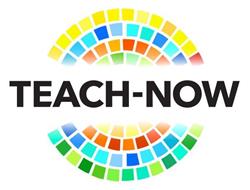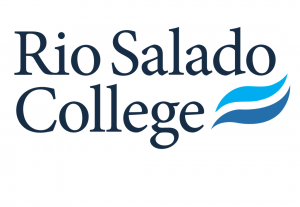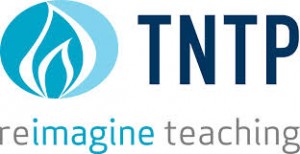Learn More About Alternative Teacher Certification

 Alternative teacher certification has existed for a long time. Recently, people have been asking how to get qualified teachers in our nation’s classrooms. Alternative teacher certification programs have quickly increased in flexibility and affordability. They offer online classes and resources to help with studying. Now, colleges are trying to keep up how technology has changed education.
Alternative teacher certification has existed for a long time. Recently, people have been asking how to get qualified teachers in our nation’s classrooms. Alternative teacher certification programs have quickly increased in flexibility and affordability. They offer online classes and resources to help with studying. Now, colleges are trying to keep up how technology has changed education.
But, there is still confusion on what alternative teacher certification is and what impact it has in the classroom. In this article, we will clarify the meaning of alternative teacher certification. We will also highlight the programs that make this type of certification possible.
What is alternative teacher certification?
Alternative teacher certification is earned outside of a traditional college program. When hiring a potential educator for a teaching position, the state Department of Education needs to know that that person knows how to teach and manage a classroom. Typically, a degree in education is that proof.
If someone did not major in education in college, they have two options. They can return to school for a Master’s degree in education or a secondary Bachelor’s degree. This is costly and can take two to four years to complete. Or, they can certify through an alternative teacher certification program.
Alternative teacher certification programs prepare future educators for the classroom by reviewing the subject the educator will teach and instructing the future educator on the basics of teaching, from lesson plans to disciplining.
Once someone has completed their alternative teacher certification program, they can then apply with the Department of Education in their state for a teaching position. The Department of Education will ensure the educator meets state standards before being placed in a classroom.
What are the state requirements?

Almost every state in the country allows educators with alternative certification to teach in public schools. States work with teacher certification programs to ensure the programs meet requirements and produce quality teachers. It is a long process to be approved as an alternative certification program, which is why there is not one program available in all 50 states.
All educators must meet basic requirements, such as holding a bachelor’s degree and passing a background check, before they are hired.
Most states allow those that certify through an alternative program to teach on a temporary, non-renewable teaching license during their first years in the classroom. During these first two years, new teachers are often evaluated and graded. Once the state is satisfied with the new teacher’s ability, they upgrade to a permanent, renewable license. Each state has different requirements for this upgrade. Contact your state Department of Education if you have questions about this.
About Alternative Teacher Certification Programs
If you’re thinking of becoming a teacher, use the teacher certification program that best fits your needs.
Below is a list of alternative certification programs.
American Board
-Approved in Arkansas, Arizona, Florida, Idaho, Utah, South Carolina, Missouri, Mississippi, Tennessee, Pennsylvania, New Hampshire, Oklahoma, Wisconsin and Ohio.
-Program costs $2,660. Promotions lower the program cost to $1,800 – $2,300 with a one-time payment.
–Payment plans and financial aid are available.
-Students have one year to use online materials to study for a pedagogy exam and a subject area exam. Most students finish within seven to ten months.
-The program and study materials are online. Students can begin the program once they enroll and do not have to wait for a designated start date.
-Students can enroll in one or more of 10 subject areas, including Elementary Education, Biology, and English Language Arts.
-Arkansas, Oklahoma, and Mississippi require first-year teachers to complete a mentorship program through the state.
Teach-Now
-Approved teacher certification in Washington D.C. and Arizona.
-Teacher certification costs $6,000, or $5,400 for a one-time payment. Teach-Now also offers a Master’s in Teacher Certification for $13,000.
-The program takes nine months to complete with rolling start dates. Classes start each month. The first six months are online. They have an average of 15 hours of coursework. In the last three months, candidates must spend at least 200 hours in the classroom.
-Payment plans are available. Financial aid and scholarships are not available.
-Students have 35 subject areas to choose from, including Spanish and Performing Arts.
-Students have mandatory web-cam sessions with classmates and virtual professors.
Rio Salado
-Approved teacher certification in Arizona.
-Certification costs between $5,000 – $6,000+. The price depends on the subject and grade you wish to certify in.
-The program takes two years to complete. Students work in Arizona public schools while completing coursework in the classroom.
-Set class times and schedules. Students must start the program on a set date.
-Financial aid and payment plans are available.
iTeach
-Approved certification in Hawaii, Louisiana, Texas, Tennessee, and Idaho.
-Program costs $4,000 – $5,000. The price depends on the state. Students can pay 10% of the program costs upfront, then the rest after completing the program.
-Coursework is online. Students have six months to complete seven instructional courses. They must pass exams with each course.
-Students begin teaching for two semesters (one school year) and are evaluated by a mentor.
-After completion of coursework, mentored teaching, and payment, iTeach recommends students to their state Department of Education.
The New Teacher Project
-Approved in 30 cities and six states: Nevada, Michigan, Tennessee, Florida, Indiana, and Maryland. They focus on low-income, high-needs school districts.
-The program is free but very competitive. Only 10% of applicants are accepted.
-New teachers train over the summer and teach in high-need schools.
-After a year in the classroom, TNTP recommends new teachers for certification.
-Those that complete The New Teacher Project program are certified to teach after completion of the program.









